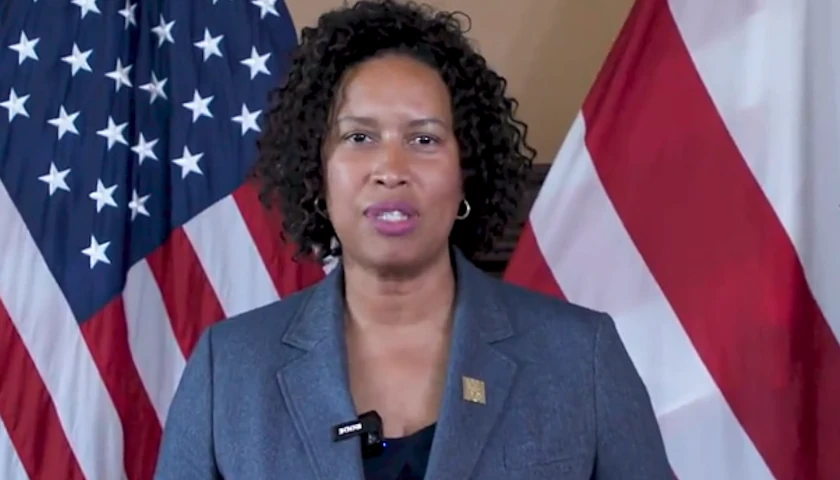As Philadelphia medical malpractice cases skyrocket, a pro-tort-reform nonprofit is asking a Pennsylvania Supreme Court committee to review new “forum shopping” rules.
The Pennsylvania Coalition for Civil Justice Reform (PCCJR) sent its second such request in two months to the court’s Civil Procedural Rules Committee Chair Kathleen Bruder. According to PCCJR, new data show that the failure to keep medical malpractice cases in their proper venues is worsening lawsuit abuse that financially batters insurers, threatens medical professionals, and harms consumers.
“It’s already had an impact on insurance rates, it’ll have an impact on patient care and, if this crisis keeps rolling, eventually all healthcare consumers will suffer because what we’ll see are specialists and high-risk specialties cut back in their services,” PCCJR Executive Director Curt Schroder told The Pennsylvania Daily Star.
Schroder’s concern stems from the court’s decision in August 2022 to reverse a 2003 rule stipulating that the filer of a healthcare lawsuit must bring the case to the jurisdiction where the cause of action transpired. Before the Pennsylvania General Assembly and the state Supreme Court adopted that reform, healthcare litigators made special efforts to introduce their clients’ cases in such locales as Pittsburgh, Scranton, and particularly Philadelphia because those cities’ have such verdict-friendly judges. Lawyers could do this if the provider had a business interest in the county where the alleged malpractice occurred.
Schroder recalled that the Keystone State experienced a liability crisis that made doctors and practices less plentiful and care more expensive. After forum shopping ended in 2003, however, Philadelphia courts saw fewer than half as many medical tort cases than they did the prior year, while more cases got filed in surrounding counties where petitioners allegedly underwent injurious treatment.
Since the Democrat-controlled high court nixed the 2003 rule last year, the Philadelphia Court of Common Pleas has seen a deluge of medical-malpractice cases. PCCJR, in its new letter to the court, provided figures showing such lawsuits filed in the city from January 2023 through May 2023 totaled 258. That’s more than double the 109 brought in the same court during the same period last year.
An average of 52 such cases now get introduced every month in the City of Brotherly Love, more than the mean monthly number of healthcare cases filed there in any year since at least 2017. At this rate, the number of medical malpractice lawsuits filed in Philadelphia in 2023 is on track to exceed the 275 brought in all of 2022 as soon as next month.
PCCJR further analyzed where the cause of action originated in the healthcare cases filed in Philadelphia this year. While the organization did not discern a clear location in 28 of those lawsuits, the alleged injury occurred outside of Philadelphia in nearly half of the 183 other cases.
So infamous is Philadelphia for delivering “mega-verdicts” in tort cases that the American Tort Reform Foundation ranks the city’s Court of Common Pleas (jointly with the Pennsylvania Supreme Court) near the top of its list of “judicial hellholes.”
The practical effects of this eruption of litigation, Schroder said, are higher insurance premiums for doctors as well as more defensive medicine (i.e., over-testing and other practices that could shield physicians from liability without helping patients). PCCJR’s first letter to the state Supreme Court cites public documents indicating The Doctors Company and Medical Protective Insurers raised rates by 7 percent and 5 percent, respectively, as a direct result of last year’s rule change. Such costs ultimately get passed on to patients.
Defenders of the state Supreme Court’s decision to revive venue shopping argue it did so to make the state judiciary’s treatment of healthcare tort cases consistent with its treatment of other liability lawsuits. Schroder disputed this rationale, pointing out that the law does not require uniform venue rules for all liability cases. He added that those who want consistency could easily advocate for applying a forum-shopping ban to all civil actions.
“Their concern about uniformity is basically a mirage,” he said. “They want to try to get as many cases into the high-verdict jurisdictions in Pennsylvania as possible. And when they can get a case into Philadelphia, the plaintiffs’ attorneys have dollar signs in their eyes and they go to bed at night dreaming of nuclear verdicts which will take Pennsylvania down pretty quickly if this continues.”
Schroder said Pennsylvanians unhappy with this state of affairs should familiarize themselves with the positions this year’s state Supreme Court candidates have taken on liability issues. He recalled that candidates aligned with the plaintiff’s bar swept the 2015 judicial elections, eventually leading to the venue rule change.
“If we have any chance of reversing that, the path goes through this year’s Supreme Court election,” he said.
In November, Republican Montgomery County Judge Carolyn Carluccio will face Democratic Superior Court Judge Daniel McCaffery to replace the late Democratic Justice Max Baer. This spring, Carluccio responded to PCCJR’s questionnaire on judicial matters while McCaffery did not.
Carluccio wrote the court’s 2003 rule against forum shopping was “adopted after significant research and deliberation in a process that was recognized as inclusive.”
– – –
Bradley Vasoli is managing editor of The Pennsylvania Daily Star. Follow Brad on Twitter at @BVasoli. Email tips to [email protected].
Photo “Doctor and Patient” by National Cancer Institute.





